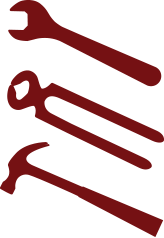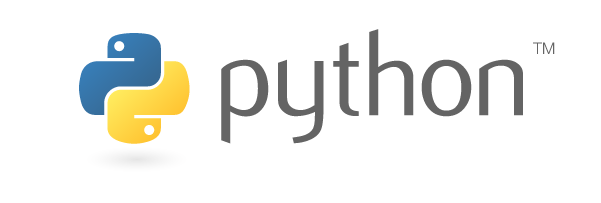Development - Our Tools

We have many different tools and platforms available in our toolbox. This enables us to pick from a wide array of options with different properties, and choose the right one for each challenge.
The Toolbox
In our efforts to liberate solutions from proprietary platforms, we have chosen to use Python as our foundation. While we have Python as our foundation due to its vast versatility, we acknowledge that a single tool may not be fit for all purposes. This is why our solutions are crafted with the best tools available for the job.
Python
What is Python?

Python1 is a programming language, and has been in development since 1991. Python is especially well-suited for scientific and engineering challenges due to the vast amount of packages in those fields that are available. Amongst these are the highly acclaimed scientific packages NumPy2, SciPy3, and Matplotlib4 — which together create an excellent foundation for computations.
Python in Science and Engineering
Python has a strong following in science and engineering worldwide, and is gaining momentum for each day that passes. This also applies to the scientific packages mentioned above — which results in that all the code, including vital algorithms, are reviewed by many developers — not too different from peer reviewing. This helps ensure the validity and accuracy of the software.
How does this help you?
We develop the majority of the components in our solutions using Python, together with its vast ecosystem of packages. This allows you to not have to rely on a proprietary platform.
As we do not have to rely on a proprietary and closed-source platform, where the vendor decides what goes in and what does not, we can customise the solutions to your needs to a far greater degree. This gives you solutions that are tailored entirely to your needs, and without compromises. Another great benefit that comes with this is that you can cut down on the high costs that are associated with proprietary platforms and their licensing.
MATLAB®
While we work towards a world with less solutions based on proprietary platforms, we understand that there are vast amounts of scripts and applications out there based on such. Based on this we acknowledge that you may already have scripts or applications in place that you may need help with. We are up to the task, and we can help you with all-things MATLAB®a.
We ask however that you consider your options for new projects.
Erlang
Erlang is in the spotlight in our solutions when it comes to complex systems. Erlang is a platform particularly well-suited for solutions that require high reliability and redundancy, and was specifically created for these kinds of applications. In the industry, it is used in telecommunication systems, where it emerged, and other vital pieces of infrastructure.
Erlang has great powers, which we embrace and unleash to create complex systems of unrivaled qualities.
Algorithm Libraries - Fortran and C
One of the many strengths of python is that it is an excellent glue language. This refers to its ability to make use of components written in other languages and combining them into a unified application.
Several different numerical libraries have developed over the past decades, with increasing optimisations, and most of these are written in either Fortran or C. We utilise these in our solutions to accelerate computations beyond what could have otherwise been possible. Bringing you the results accurately, and fast.
Miscellaneous
There are endless other programming languages, application servers, and other miscellaneous softwares that make up the whole picture. Some of the more notable ones that we have experience in and that we can help with are: R, the popular choice in statistics; co-processor and GPGPU acceleration through means of NVIDIA® CUDA®b and OpenCL™c — when the CPU is not fast enough; as well as direct in-database development, for custom aggregation functions and more, close to the data.
- ^Python. Read more on the Python official website.
- ^NumPy. Read more on the NumPy official website.
- ^SciPy. Read more on the SciPy official website.
- ^Matplotlib. Read more on the Matplotlib official website.
- ^MATLAB® is a registered trademark of The MathWorks, Inc.
- ^NVIDIA® and CUDA® are registered trademarks of NVIDIA Corporation.
- ^OpenCL™ is a trademark of Apple Inc.
